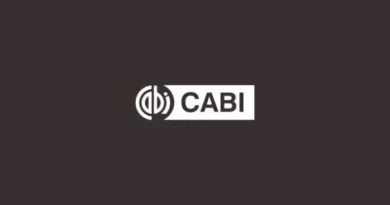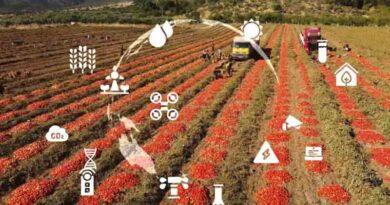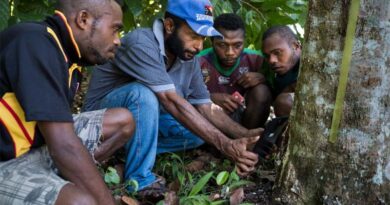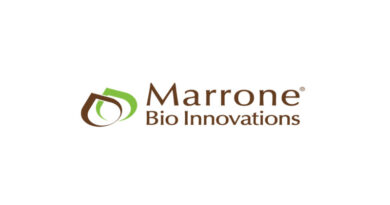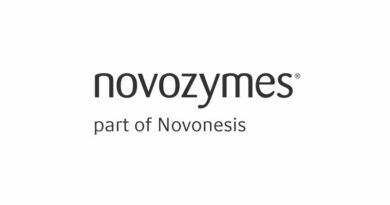CABI conducts workshop in India to help pave the way for better FAIR data processes in agriculture
09 January 2024, India: CABI, as part of the Enabling FAIR data sharing and responsible data use, has conducted a workshop in Delhi, India, to help pave the way for better FAIR data processes in agriculture.
The project, funded by the Bill & Melinda Gates Foundation, aims to address responsible FAIR data sharing and improved data management practices, and identify possible risks encountered during the development of interventions to achieve this.
Dr Vinod Pandit, Acting Regional Director, South Asia, gave opening remarks to the workshop, which focused on six steps within a FAIR process framework that helps contribute to the establishment of a robust and sustainable data ecosystem.
The workshop, which built upon the basis of FAIR principles – Findable, Accessible, Interoperable, and Reusable – was also attended virtually by Martin Parr, Director, Data Policy & Practice, as well as in person by staff from CABI’s centre in India.
It was conducted by Arun Jadhav, Manager – Digital Development, Akanksha Nagpal, Project Coordinator, South Asia, and CABI Consultant Ranjeet Kumar Singh.
A mix of stakeholders from different backgrounds – such as FAIR practitioners from the Indian Statistical Institute, Bangalore, the Indian Institute of Technology, Delhi, and Delhi University and domain experts from the diverse institutions of Indian Council of Agricultural Research (ICAR) such as Indian Agricultural Research Institute, Indian Agricultural Statistics Research Institute and The Directorate of Knowledge Management in Agriculture were present to give their inputs on the framework and how well it resonates with them.
FAIR process framework
In the dynamic landscape of development and innovation, data has emerged as a crucial asset, offering insights and solutions to some of the world’s most pressing challenges. However, realizing the full potential of data requires a commitment to principles that ensure its accessibility and usability.
CABI developed a FAIR process framework by adopting a people-first approach from the perspective of human-centered systems design in the people, process, technology framework. It is designed to guide the project officers towards the integration of FAIR principles in their investments.
The comprehensive framework comprises of six pivotal steps. These are ‘define data intervention types,’ ‘understand the enabling environment,’ ‘identify data assets,’ ‘codevelop FAIR aligning principles,’ ‘develop a FAIR data governance strategy,’ and ‘develop a FAIR technical implementation plan.
Define data intervention types
The journey towards FAIR data begins by identifying key intervention types that can overcome barriers hindering the transformation of data into a FAIR format. This step prioritizes high-impact interventions, setting the stage for a targeted and efficient process.
Understand the enabling environment
Recognizing the external factors that influence data accessibility is paramount. The second step involves understanding the enabling environment – the external conditions critical for fostering FAIR data practices throughout the investment cycle. This holistic approach ensures that the impact of FAIR principles extends beyond individual projects.
Identify data assets
Vital data assets lie at the heart of any successful investment. Identifying and ensuring the availability of these assets is the third step in the framework. This step guarantees that the data essential for operational success is not only recognized but also made accessible for optimal utilization.
Codevelop FAIR aligning principles
FAIR is not a ‘one-size-fits-all’ concept. In the fourth step, stakeholders collaboratively define the significance of FAIR within the context of the investment. This approach encourages broader participation, ensuring that the FAIR agenda is shaped by diverse perspectives.
Develop a FAIR technical implementation plan
The final step involves creating a technical blueprint outlining the readiness for achieving FAIR compliance. This plan equips stakeholders with the tools and knowledge necessary for seamless FAIR implementation, ensuring a smooth transition to a data-driven paradigm.
Strengthening the framework
The participants especially liked the fact that the workshop focused on problems first rather than a technology-first approach and the steps made sense in a clear order. The systems thinking approach and human-centered approaches used to develop the framework were also well appreciated.
The workshop brought some healthy discussion around the overall FAIR process framework and its six steps for the implementation FAIR in research projects and the experts gave their valuable inputs that would help to strengthen the framework further.
All the stakeholders agreed that the developed framework is applicable to their actual working context, and it would be useful in supporting FAIR data implementation in different types of projects. The framework resonated well with the stakeholders in terms of implementation in both their own context and various other projects.
Dr Pandit said, “CABI plans to conduct workshops on the FAIR process framework with a diverse range of stakeholders. This inclusive approach will involve engagement with funders, project implementors, researchers, and other key players in the data ecosystem.
“By bringing together a wide spectrum of perspectives, these workshops aim to enrich the framework further, ensuring its adaptability across various sectors and contexts.”
Also Read: Use of Nano Urea decreases Wheat yield by 20%: PAU
(For Latest Agriculture News & Updates, follow Krishak Jagat on Google News)


